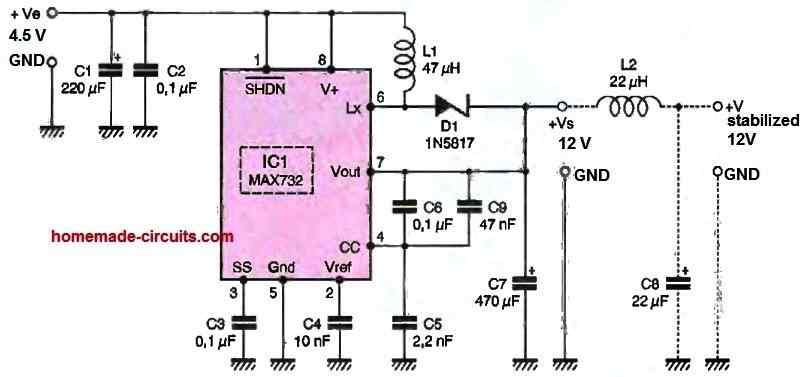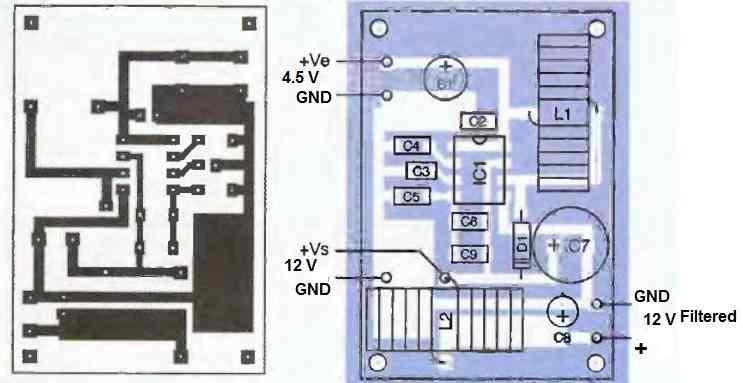The proposed boost converter circuit using MAX732 IC will allow you to have a continuous voltage of 12V with a current of 150 or 200 mA. The input voltage can be between 4.5 to 9 V, which can be produced by three 1.5V batteries, for example.
The circuit is quite simple, we will be using a circuit from MAXIM, specifically using the IC MAX732, presented in an 8-pin DIL package.
Circuit Description
As you can see in Figure 1 below, the implementation is straightforward, and aside from the inevitable inductor and its associated Schottky diode, only a few inexpensive external capacitors are needed to achieve our goal.

The output voltage generated by this circuit is 12 V, and if a current of 150mA is sufficient, the input voltage can vary from 4.5 to 9.3 V. However, if you need a higher current rate but do not want to exceed 200 mA, the minimum input voltage should be between 6 and 9.3 V.
As with any switching power supply, the output voltage is affected by high-frequency residues due to switching. Therefore, we have provided an optional output filter, realized using L and C, to eliminate them.
Of course, you are free to include or exclude these components, depending on the intended use of the circuit and the sensitivity of the load it powers to disturbances carried by the power line.
Construction
Once again, we have chosen only easily available components, and like for the other projects in this article, we indicate in the parts list the suppliers who have the necessary products in stock. As for the previous switched-mode power supplies, be sure to buy low ESR electrolytic capacitors when mentioned in the parts list.
The printed circuit board (PCB) designed for this project is shown in Figure 2, and the component placement diagram is shown in Figure 3, as shown below.

Note that the output filter is included by default, but we have also provided the option to cut this circuit above the inductor to create a version without an output filter.
The assembly presents no particular difficulties, but be sure to observe the polarity of the diode, integrated circuit, and electrolytic capacitors.
How to Use
With an input voltage within the specified range, the output voltage of 12 V should be available.
However, as with the other switched-mode power supplies, be sure to draw some current from the output if you want to measure the output voltage accurately.
This MAX732 boost circuit is protected against output shorts and input voltages that are too low. In the latter case, it locks up and does not generate any output voltage until the input voltage reaches the minimum required value for correct operation, typically 4V.



Need Help? Please Leave a Comment! We value your input—Kindly keep it relevant to the above topic!